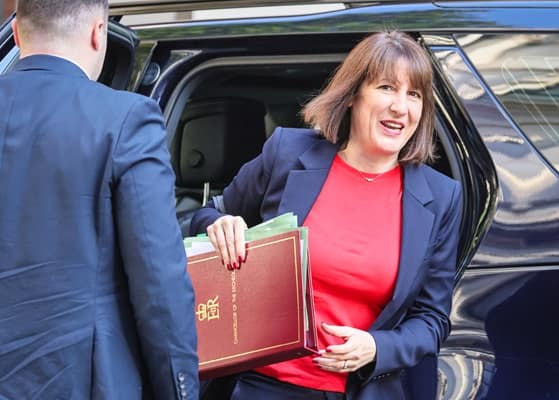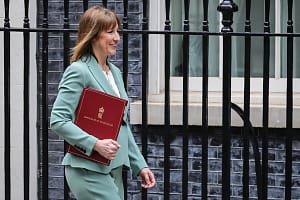The Consumer Prices Index (CPI) rose by 2.8% in the 12 months to February 2025, down from 3.0% in the 12 months to January, according to official data published this morning.
On a monthly basis, CPI rose by 0.4% in February 2025, compared with a rise of 0.6% in February 2024.
The largest downward contribution to the monthly change in both CPIH and CPI annual rates came from clothing, with a further large downward effect in CPIH from housing and household services.
Newspage asked economists and financial services experts what this says about the health of the economy, if it is a boost for the Chancellor ahead of the Spring Statement and how it might impact growth, the Pound, monetary policy, markets and overall business confidence. Views below.
Gabriel McKeown, Head of Macroeconomics at Sad Rabbit commented: “Today’s inflation figures are a temporary respite before the storm, a fleeting period of calm before the economic tempest that is the Spring Statement unleashes havoc on all major economic indicators.
“This slight reduction in inflationary pressure is a hollow victory given the forecast uptick towards the end of this year, and will do little to encourage the MPC to adjust their rate-cutting trajectory, especially when coupled with wage growth remaining elevated at 5.9%. The market’s reaction to this inflation print is likely to be underwhelming, given all eyes are currently on the upcoming Spring Statement, which is shaping up to be less of an economic update and more of a grim reality check.
“While lower inflation typically bodes well for equities, the prospect of spending cuts and future inflationary pressures could temper enthusiasm, with the Chancellor’s fiscal strategy less about growth and more of an austerity redux.”
Harry Mills, Director at Oku Markets commented: “The easing in the inflation rate from 3% year-over-year in January to 2.8% in February is welcome news, although it doesn’t do much to change the underlying feeling in the economy. January’s numbers included the newly charged VAT on private school fees and increases in transport costs.
“This morning’s numbers for February showed transport costs continued to rise, whilst clothing and recreation prices were down. The path to lower inflation was always going to be be bumpy, and this morning’s data won’t leave a lasting impact on the Bank of England. April will surely bring a fresh bout of inflation through increases to employer’s NICs and the minimum wage. The economy will feel the brunt of this, and the corresponding higher-for-longer interest rates for some time.”
Rob Mansfield, Independent Financial Advisor at Rootes Wealth Management commented: “Whilst this a positive piece of news on the day of the Spring Statement, it reinforces the delicate position the economy is in. Markets and business want lower interest rates to enable growth and yet inflation remains stubbornly above target.
“Rates can’t therefore fall too fast in case inflation spikes. A degree of inflation helps the Chancellor by eroding the value of debt and so everyone is walking a fine tightrope. With geopolitical tensions running high, it shows there’s very little room for policy error.”
Wes Wilkes, CEO at IronMarket Wealth commented: “The Government is likely to take credit for inflation dipping ever closer to their 2.5% target. However, it could also indicate that the Bank of England is once again behind the curve again on rates and monetary policy if this trend becomes entrenched. That’s a real worry.”
David Belle, Founder and Trader at Fink Money commented: “Sterling should be pressured here throughout the day, especially with the US exceptionalism trade back on where capital is likely to flood back to USD. Traders will of course be mindful of the Spring Statement but the fact remains that nothing Reeves can do here apart from cutting taxes will be beneficial for growth. The Treasury needs to stop imposing fiscal rules on itself and do similar to the USA, which raises their debt ceiling every other year.”
Adam Stiles, Managing Director at Helix Financial Partners commented: “This is really welcome news in a climate of economic negativity. It’s a small drop but a drop that gives some comfort to the markets. We hope this boost will give confidence to lenders. All eyes are on the next Bank of England MPC meeting in May to determine what happens with the base rate.”






Leave a Comment